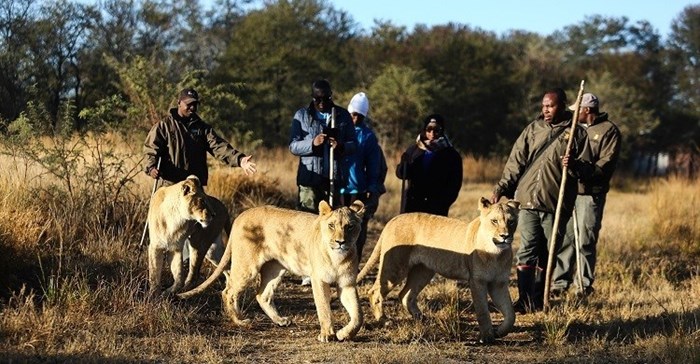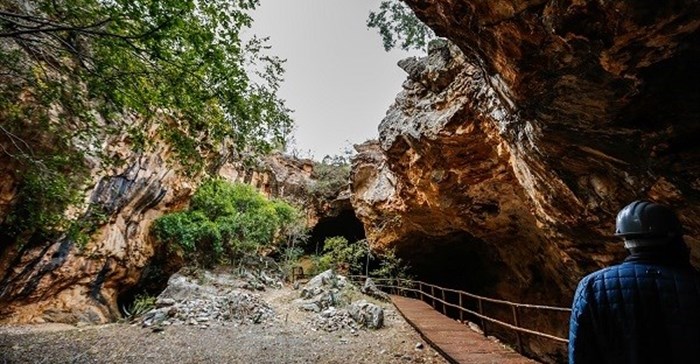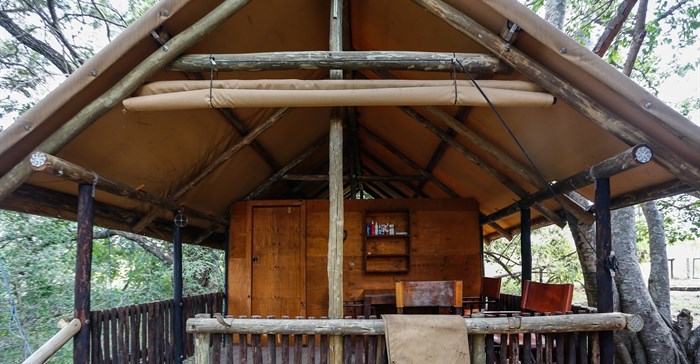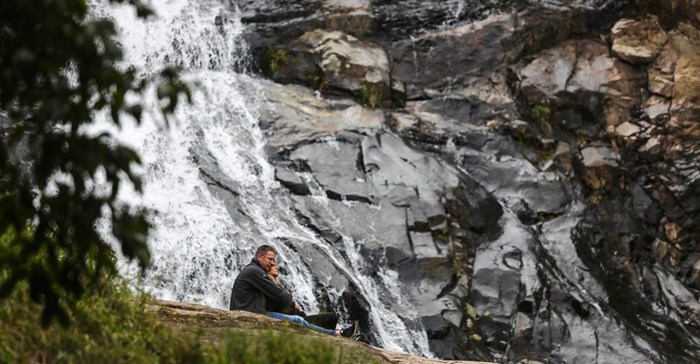
Related




South Africa’s G20 presidency is over – what did it achieve for climate and clean energy in Africa?
Britta Rennkamp 9 Dec 2025


Top stories






More news













Bela Bela and Thaba Manzi Wildlife Centre
The team began their tour with a stay at Forever Resorts Bela Bela (“Bela Bela” is Tswana for “pot that boils”). From this base, they visited a township to experience local culture, before heading to Thaba Manzi Wildlife Centre, an institution dedicated to wildlife conservation and the rehabilitation of injured animals. Here the team met recuperating baby rhino Hope. The team also headed to the hydro to relax in the renowned mineral waters of the hot springs.

During a visit to the Makapans Caves the following day, the eam found themselves a knowledgeable guide who introduced them to the series of three limestone caves, famed as the source of many important palaeontological findings. Accommodated that evening by the Protea Ranch Hotel and Resort, the team dined at Basil’s Restaurant, and in the morning had the opportunity to walk with lions and cuddle a cheetah – whose spectacular speed was a sight to behold.

Near Polokwane, a fascinating tour of the Bakone Malapa Open Air Museum, fashioned after a traditional Basotho village of 250 years ago, gave the team some sense of the Basotho people’s old way of life and interactions with the Ndebele, the Tsonga, and colonialists. Then, travelling on to Venda, they searched for the Royal Venda burial ground at Lake Fundudzi, formed in the distant past when the Mutale River was blocked by a landslide. As the lake is held as sacred, it cannot be approached by outsiders, and legend has it that the lake is inhabited and protected by a python god.
Having spent the night at Forever Resorts Tshipise, the TOMSA/Sunday Times Finders Keepers team set out for Mapungubwe National Park, where they visited Mapungubwe Hill. Now a UNESCO World Heritage site, Mapungubwe’s landscape features sandstone formations, mopane woodlands and a wealth of birds and wildlife. The area was once home to an indigenous civilisation that existed from around 1050 to 1260 AD, and traded with countries as far afield as Egypt, India, South East Asia and the Middle East until climate change brought the kingdom to an end. Bordering on both Zimbabwe and Botswana, the park includes an award-winning museum where visitors can see some of the artefacts recovered during excavations of the site – the most famous of which is a delicate sculpture of a golden rhino, now an icon of Mapungubwe.
Next, the team moved on to Tzaneen, where they stayed at the Tzaneen Country Lodge. Tzaneen is home to the Modjadji Nature Reserve, where one can find the world’s largest concentration of a single cycad species – some of which are the oldest and largest of their kind anywhere on Earth. From one amazing species of the plant kingdom, the team went on to see another: the Sunland Big Baobab, an enormous tree estimated through carbon dating to be more than 1,700 years old, and the trunk of which houses a now defunct bar.

Then, at the Debengeni Waterfall, they relaxed with a picnic lunch and watched the Ramadipa River falling 80m into a pool formed by thousands of years of erosion, before returning to Tzaneen Country Lodge for a short sunset cruise.

Tzaneen Country Lodge, along with the other fine establishments that accommodated the team - Forever Resorts Bela Bela, Forever Resorts Tshipise, and the Protea Ranch Hotel and Resort - are all TOMSA contributors, meaning that they pay a levy towards marketing “destination South Africa”, thereby stimulating tourism and contributing to the local economy.
Limpopo may be overlooked in the tourism stakes, but it’s a diamond in the rough: a gem with the potential to outshine some of the country’s more celebrated landscapes.
For more on the TOMSA/Finders Keepers team’s hunt for some of South Africa’s most fascinating destinations, as well as the chance to win R1 million and fabulous holiday prizes sponsored by TOMSA levy contributors visit www.finderskeepers.mobi , dial *120*3937# or follow #FindersKeepersSA